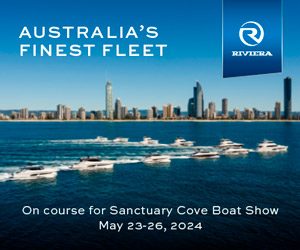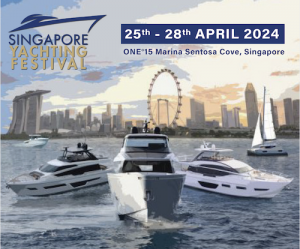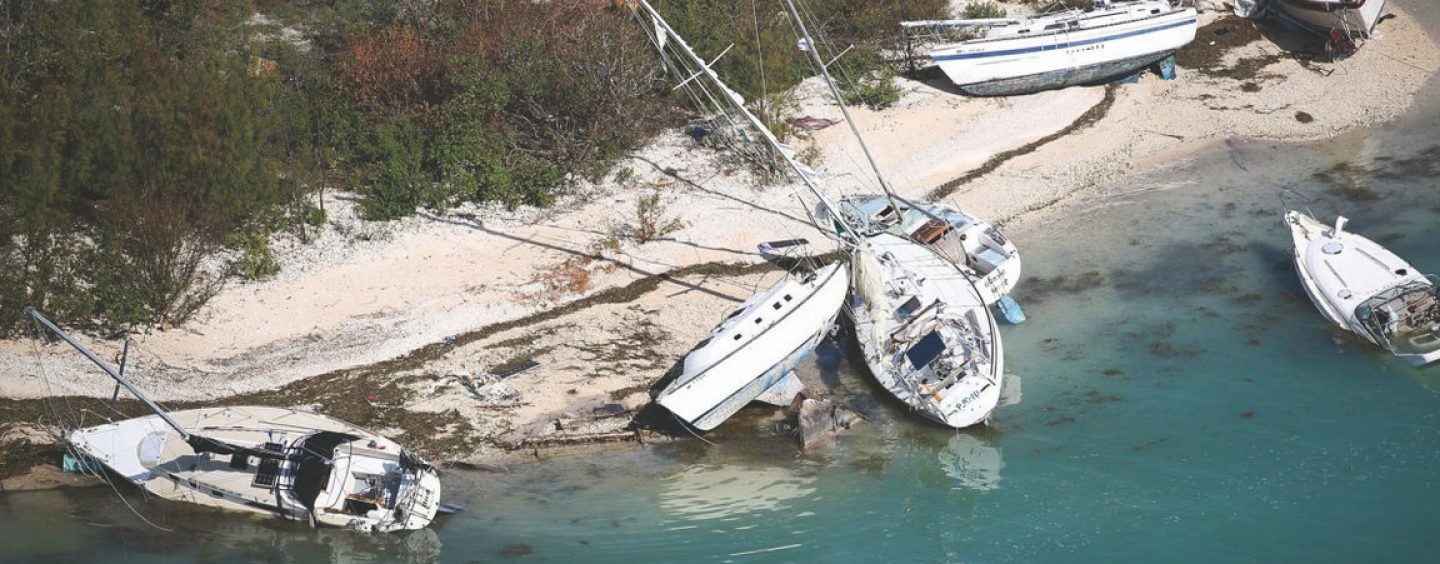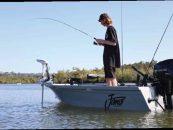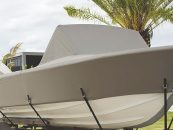SALVAGE OF GOODS AND BOATS
By Ryan Norval, Maritime Lawyer
As you boarded your boat this morning, you had a surreal feeling that today is a day where Poseidon will offer up his fortunes for your taking. Maybe not quite as successful as Drake’s Golden Hind capturing the Nuestra, but, nevertheless, a eucatastrophe’s event. You’re heading out through the waterways after a night of severe storms, enjoying the warm sun on a windless morning with the water a reflective glass. As you approach Wave Break Island, you notice a listing Riviera 6000 motor yacht drifting aimlessly with the tide out to sea. Curiosity gets the better of you and you ‘Ahoy!’ on approach. On closer inspection, nobody is on board, and the vessel seems to have broken her mooring upstream during the night’s storm and fresh gale. The situation is not a griph, and you decide to take the Riviera to the marina for safety. At the marina, you are told that the trident of Poseidon has struck gold for you by your effort – you have a salvage claim and riches, or indeed, the Riviera itself as a treasury possession.
You contemplate the idea through an email to our practice at Pacific Maritime Lawyers and have the following questions:
DO I NOW ‘OWN’ THE BOAT?
Now, wouldn’t that be great! If a boat, or any item for that matter, is found, the circumstances in which it is discovered may suggest the prospect of an intention to abandon the article. Items which are merely lost are not abandoned. For example, a GoPro camera spotted drifting along the surface is clearly lost and not abandoned. On the other hand, if you notice a Danforth anchor on the side of the slipway with a note that says ‘free’, there is a fair chance that the owner has left the anchor with the intention for anyone who wants it to have it.
The law says that personal property could be transferred through abandonment and you may appropriate such items as the new owner. This involves the owner to have the intention to relinquish any claim to the property, and not only an intent to relinquish possession. From what you tell us, it seems unlikely that the owner has decided to renounce their ownership of the vessel by her having broken the mooring and being adrift; so, I’m afraid not, captain – you cannot appropriate the Riviera, and you are not the new owner by default.
DID I ‘SALVAGE’ THE BOAT?
A ‘salvage service’ is a service that saves or helps to save the subject of the service from danger. Salvage of a vessel can only take place where it is under, or alongside the high seas – and inland tidal waters are included. Whether a particular service is a salvage service or not, is an objective one, based on fact. However, it is only maritime property that can be the subject of a salvage service.
‘Maritime property’ consists of a ship, freight or cargo, and this includes the wreck of a boat. A ‘ship’ is meant to be any seagoing vessel. Cargo again consists of all merchandise onboard the vessel. Interestingly, no reward is payable in maritime law for the salvage of an aircraft.
Therefore, from the facts you provide, it seems from the above criteria that your kind act could indeed be a successful salvage of the Riviera.
AM I ENTITLED TO A SALVAGE REWARD?
It most certainly seems so, and also those who actively participated in the salvage operation with you. A person rendering the salvaging service, known as the salvor, becomes entitled to remuneration known as ‘salvage reward’. Unlike common law, maritime law allows for a reward to be payable for a service rendered voluntarily. It is as clear as the waters of the FNQ that the Riviera would have either sunk from the listing or run aground had you not come along to intervene in the eventual fate. Replacement value could be in the region of $2,200,000, and you have therefore just ‘saved’ the owner, or insurance company, a staggering seven-digit figure loss. And you have not even given much thought to the costs for an environmental spill to clean up.
The International Convention on Salvage 1989, which governs salvage awards, have mainly been brought into force in Australia through the Navigation Act 2012 (Cth). Salvage law is therefore now governed by these provisions.
Salvage of human life is obligatory and regulated by section 181(1) of the Navigation Act 2012 (Cth), which dictates that where there is no serious danger to the ship, crew or passengers, the master of a vessel is under a duty to assist any person found at sea in danger of being lost. Not rendering assistance makes you guilty of an offence.
HOW BIG IS THE SALVAGE AWARD?
In ancient times, the Phoenicians recognised that the more challenging a salvage was, the more the award ought to be. A claim for salvage requires that the salvage service was rendered where life or property was in danger. Also, a salvage claim will not usually succeed unless the service was rendered voluntarily, and personally, by those claiming to be the salvors. Finally, as a general guide, the salvage operation must have been successful in its purpose. Although title (ownership) to the Riviera is not up for grabs, some form of value can be claimed. In the meantime, you have a maritime lien attached to the Riviera to secure the reward.
If anything like this happens to you, call Pacific Maritime Lawyers on 1300 797 627 and we would be very happy to help!


